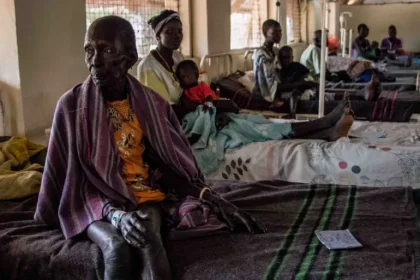By Adeyemi Adekunle
The Federal Executive Council (FEC) has approved a groundbreaking $1.07 billion investment through the World Bank’s International Development Association (IDA). This funding, secured under the Human Capital Opportunities for Prosperity and Equity (HOPE) program, represents one of the most significant health sector investments in Nigeria’s history.
Muhammad Ali Pate, the Coordinating Minister of Health and Social Welfare, praised President Bola Ahmed Tinubu for his leadership in securing this investment, emphasizing that it is a decisive move toward improving healthcare accessibility and human capital outcomes across the nation. The funds will be distributed in partnership with all 36 states and the Federal Capital Territory (FCT) under the Health Sector Renewal Investment Initiative, targeting critical gaps in healthcare delivery and workforce development.
According to the minister, a substantial portion of the funds will go toward recruiting, training, and retaining healthcare professionals at the state and local levels. This is particularly crucial given Nigeria’s ongoing struggles with medical brain drain, where thousands of doctors and nurses leave the country annually in search of better opportunities abroad. By investing in human capital, the government aims to reverse this trend and ensure a more sustainable healthcare system.
In addition to the HOPE program funding, the FEC has also approved N4.8 billion for the procurement of 150,000 HIV treatment packs. This investment is aimed at sustaining life-saving treatment for people living with HIV/AIDS, ensuring uninterrupted access to antiretroviral therapy over the next four months.
Given that Nigeria has one of the highest HIV prevalence rates in Africa, this move underscores the administration’s commitment to strengthening public health infrastructure and providing critical care for vulnerable populations.
Over the years, Nigeria’s healthcare system has relied heavily on foreign aid and donor-funded programs, particularly in the fight against diseases such as HIV, tuberculosis, and malaria.
While international support—especially from the United States—has played a crucial role in saving lives and improving public health outcomes, the Nigerian government is now charting a path toward greater self-sufficiency.
To achieve this goal, a newly established cabinet committee, comprising the ministries of health, finance, budget, defense, and environment, will oversee the development of a multi-level, multi-disease transition and sustainability plan.
This initiative is designed to gradually reduce Nigeria’s dependency on external health aid and increase domestic resource mobilization. By strengthening health security and unlocking private sector potential within the healthcare value chain, Nigeria aims to take full ownership of its national health development priorities.
The approval of these substantial funds comes at a time when the country faces mounting healthcare challenges, including inadequate infrastructure, limited access to quality medical services in rural areas, and persistent outbreaks of preventable diseases. With millions of Nigerians still unable to afford basic healthcare, the government’s renewed focus on investment and reform is expected to drive systemic improvements and expand universal health coverage.
Global health partners, including the U.S. government, have expressed their continued support for Nigeria’s efforts to enhance its healthcare system. Over the past two decades, the U.S. has provided extensive funding to combat HIV/AIDS, tuberculosis, and malaria, playing a pivotal role in reducing mortality rates and improving overall health indicators. As Nigeria transitions toward self-reliance, fostering strong partnerships with international stakeholders will remain critical in ensuring sustainable progress.
With these new investments, Nigeria is signaling a clear commitment to overhauling its healthcare sector, addressing long-standing inefficiencies, and building a resilient system capable of meeting the needs of its rapidly growing population.
The coming years will be crucial in determining the success of these initiatives, but for now, the approval of $1.07 billion under the HOPE program and additional HIV funding marks a significant milestone in the country’s healthcare reform journey.




